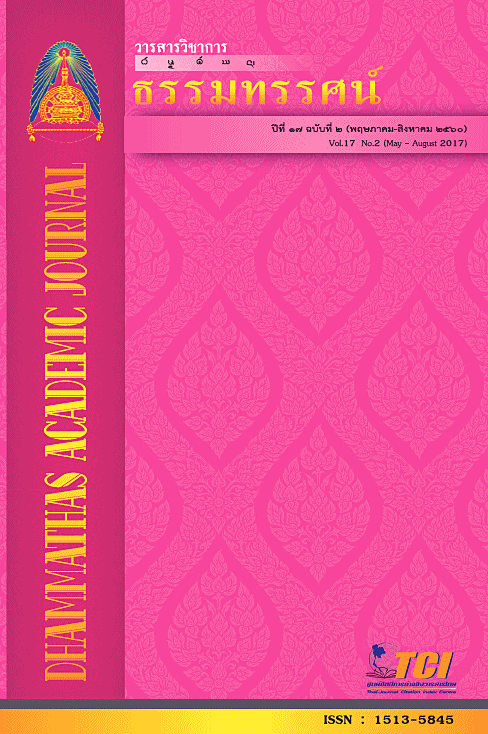การศึกษาวิเคราะห์มิติเมตตาธรรมในพระไตรปิฎก
Main Article Content
Abstract
บทคัดย่อ
เมตตาในพระพุทธศาสนานั้น เปรียบเสมือนน้ำบริสุทธิ์สำหรับชำระสิ่งสกปรก คือ ความโลภ ความหลง และความโกรธ เพราะเมตตาธรรมเป็นหลักธรรมที่ช่วยพัฒนาพฤติกรรมของมนุษย์ที่แสดงออกด้วยความรักในสัตว์ทั้งหลาย ด้วยจิตเสมอกันในสัตว์ทุกหมู่เหล่าในที่ทั้งปวง เป็นหลักธรรมที่พระพุทธเจ้าทรงอบรมสั่งสอนให้มนุษย์โลกทุกคนได้ประพฤติปฏิบัติให้เกิดมีขึ้นในจิตใจ เพราะมีอานิสงส์ที่ปรากฏออกมาเป็นคุณธรรม ๓ ประการ คือ ๑) การมีเมตตากายกรรม เป็นการประพฤติสุจริตทางกาย ๒) การมีเมตตาวจีกรรม เป็นการประพฤติสุจริตทางวาจา ๓) การมีเมตตามโนกรรม เป็นการประพฤติสุจริตทางใจ ซึ่งวิธีการเข้าถึงเมตตาธรรมพึงปฏิบัติด้วยการเมตตาประกอบหลัก ๓ ประการ คือ
๑) การไม่ทำบาปทั้งปวง ๒) การทำกุศลให้ถึงพร้อม และ ๓) การทำจิตใจให้บริสุทธิ์
Abstract
Compassion in Buddhism is like pure water to pay off dirt, greed, delusion and anger, because mercy is the principle that helps to develop human behavior expressed by love in animals. With equanimity in all animals in all places. It is a principle that the Buddha taught to human beings all the world to behave in the mind. Because there are virtues that appear to be virtuous 3: 1) the mercy of acrobatics. To be honest and physical 2) To have compassion. To behave honestly. 3) To have compassion. Is honest conduct the way to reach compassion is to practice compassion in three main ways: 1) Not to sin, 2) To charity, 3) To purify the mind.

